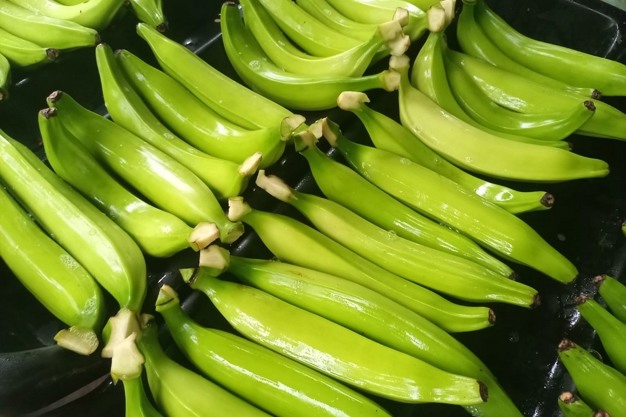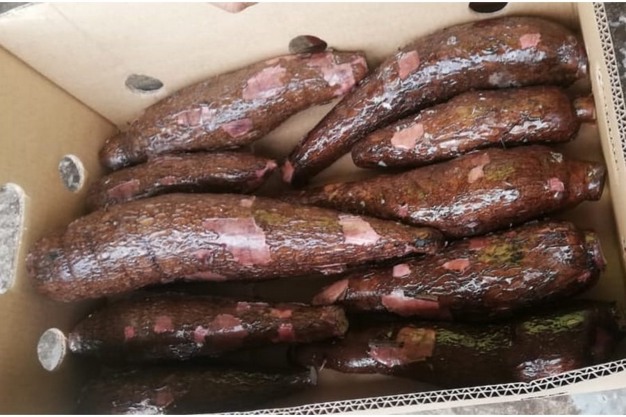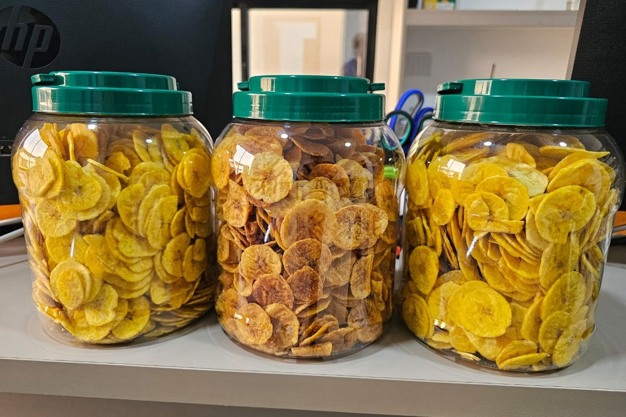"In recent years, the international market -especially the United States and Europe- has shown a growing interest in Ecuador's tropical fruits. Products such as barraganete plantain, malanga, and cassava are booming, favored by the demand of Hispanic consumers abroad who are looking for flavors from their homeland. This growth is the result of an effort to satisfy specific niches, which are mainly driven by Latino consumers, both in large US cities and in key European destinations," stated Juan Carlos Zambrano, commercial manager of Agropacífico del Ecuador SA.
"Ecuador is shipping up to 40,000 boxes of malanga a week to the United States. Our main product is the barraganete plantain, which is known as plátano macho in Spain," he added, highlighting its strong demand in the United States.

Ecuadorean exports of bananas, malanga, pitahaya, and exotic fruits, with an emphasis on markets such as the United States and, soon, Europe, are usually made in mixed containers that also include cassava and avocado.
The market for these Ecuadorian products has recently experienced variations. In 2023, the price of a box of plantains in the United States reached up to $50 due to low production in Central America. In 2024, prices have hovered between $18 and $22. As for cassava, the maximum price in the US market is currently between $15 and $16 per 35-pound box. "Ecuador benefits from favorable weather conditions and solid demand in the Hispanic market," Zambrano said, referring to Latino consumers in both the Americas and Europe that are driving demand for cassava and malanga.

Agropacífico also stands out for its ability to offer mixed containers, a strategy that facilitates inventory turnover and meets the demand for multiple products in a single shipment. In addition, the company has taken steps to meet quality standards such as GlobalGAP certification and is in the process of acquiring organic certification for its malanga and plantain products.
"The company has managed to innovate in the processing of these products, adapting them to more convenient formats, such as its plantain snacks, which are gaining popularity in Europe and the United States. These ready-to-eat alternatives are a step towards product diversification, providing a practical option for the modern consumer looking for quality and flavor," the manager stated.

Zambrano also highlighted the company's commitment to sustainable practices, both in pesticide use and water management, following FDA regulations and ensuring a close relationship with local farmers. "We recycle and avoid banned pesticides; we support our farmers with inputs to maintain the quality of our products," he added.
Looking ahead to 2025, Agropacífico plans to increase its added value with more processed products, such as frozen bananas, cassava, and malanga. This innovation responds to a growing market looking for convenience and ready-to-eat products, Zambrano concluded.
For more information: Juan Carlos Zambrano (commercial manager)
Juan Carlos Zambrano (commercial manager)
Agropacífico del Ecuador S.A.
Tel.: +593 993977773
Email: [email protected]
www.agropacificoecuador.com










